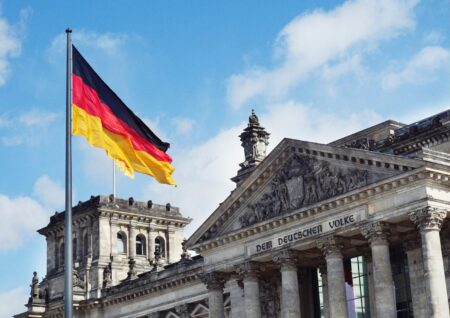Germany, Europe’s largest economy, faces mounting challenges that threaten its growth and global competitiveness. In a recent report, the International Monetary Fund (IMF) outlines critical policy recommendations aimed at revitalizing Germany’s economic momentum. As inflationary pressures, demographic shifts, and evolving global markets weigh heavily on the nation, the IMF’s analysis provides a roadmap for sustainable growth. This article delves into the key findings and proposed measures to “Make Germany Grow Again,” highlighting the implications for policymakers, businesses, and the broader European economy.
Economic Challenges Facing Germany Amid Global Uncertainty
Germany’s economic landscape is currently under pressure from a mix of persistent global uncertainties including volatile energy prices, supply chain disruptions, and geopolitical tensions. These factors have led to decreased industrial output and inflationary pressures, challenging the nation’s role as Europe’s economic powerhouse. Moreover, an aging population and lagging digital infrastructure compound the difficulties, limiting productivity gains and innovation potential. Experts emphasize that without swift policy adaptation, Germany risks stagnation in an increasingly competitive global economy.
Key factors influencing Germany’s economic hurdles:
- Rising inflation driven by high energy costs
- Supply chain bottlenecks affecting automotive and manufacturing sectors
- Demographic shifts leading to shrinking workforce
- Growing competition from emerging markets in technology and exports
| Sector | Growth Rate 2023 | Outlook 2024 |
|---|---|---|
| Automotive | +0.8% | Moderate Recovery |
| Manufacturing | -1.2% | Stable |
| Technology | +2.5% | Growth Acceleration |
| Export | +1.1% | Uncertain |
IMF Analysis Highlights Structural Reforms and Investment Priorities
The International Monetary Fund has underscored the urgency for Germany to undertake comprehensive structural reforms aimed at revitalizing its economic dynamism. Central to these reforms is enhancing labor market flexibility, reducing regulatory burdens, and fostering innovation through targeted support for emerging sectors. The IMF points to the need for modernized education and training systems to better align workforce skills with the demands of a rapidly evolving global economy.
Investment priorities, as outlined by the IMF, place strong emphasis on sustainable growth driven by green technologies and digital infrastructure. Key recommendations include:
- Boosting public and private investment in renewable energy projects.
- Upgrading broadband and 5G networks to support digital transformation.
- Enhancing public transportation and urban mobility systems.
- Encouraging research and development through fiscal incentives.
| Area | Priority | Impact Timeline | ||||||||
|---|---|---|---|---|---|---|---|---|---|---|
| Labor Market Reform | High | Short-Term | ||||||||
| Green Energy Investment | Very High | Medium-Term | ||||||||
| Digital Infrastructure | High | Policy Recommendations Focus on Innovation, Labor Market Flexibility, and Green Transition To revitalize Germany’s economic growth, policy frameworks must prioritize technological advancement and workforce adaptability. Strengthening investment in research and development will fuel innovation ecosystems crucial for sustaining global competitiveness. This means incentivizing private sector partnerships and easing administrative barriers for startups, allowing new technologies to flourish and transition rapidly from labs to markets. Simultaneously, modernizing labor market regulations is imperative. Greater flexibility would empower businesses to adjust more efficiently to changing economic conditions, while upskilling programs will prepare workers for evolving job demands, particularly in emerging sectors. Embracing a green transition not only aligns with environmental goals but also unlocks fresh economic opportunities. Key strategies include:
In SummaryAs Germany confronts mounting economic challenges, the International Monetary Fund’s recommendations underscore the urgency of comprehensive reforms to reignite growth. By addressing structural inefficiencies, investing in innovation, and fostering a more resilient labor market, Germany has the potential to restore its position as Europe’s economic engine. The coming months will test the country’s commitment to these changes-and its ability to navigate a rapidly evolving global economic landscape. | . . .




